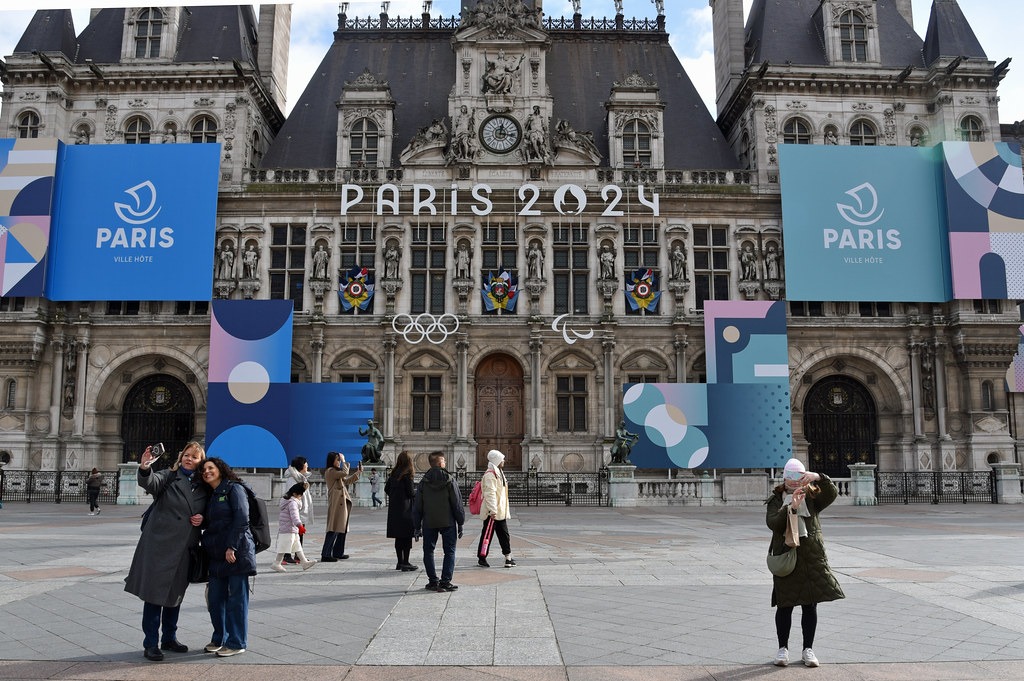What will Paris 2024 look like for Russian athletes?
The imminent Paris Olympics will mark the first Summer Games since Russia’s full-scale invasion of Ukraine in 2022, an ongoing campaign which is supported by Belarus. A select number of Russian and Belarusian athletes have been cleared to compete in Paris as Individual Neutral Athletes (AIN) by the International Olympic Committee (IOC), after undergoing a rigorous vetting check to prove their opposition to Putin’s war.
Restrictions had previously been imposed on Russia from 2018 to 2022 on the heels of a state-sponsored doping scandal – during the 2020 Tokyo Summer Olympics and the 2022 Beijing Winter Games they were forced to participate as the Russian Olympic Committee (ROC). This time, however, ‘AIN’ successes will not appear in the medal table, given that those competing under that acronym will feature in Paris as individual athletes.
The depletion of Russian sporting presence is now likely to give other nations the opportunity to win medals in events where Russian athletes often end up on the podium
Russia is usually one of the largest contingents at the Olympics, not to mention one of the most prolific medal-winning heavyweights. Whilst the delayed Tokyo Games in 2021 saw 335 Russian athletes descend on the Japanese capital, the country’s roster of hopefuls this summer under the ‘AIN’ label will be a mere 15. Similarly, the Belarusian ranks have dwindled from 101 three years ago to 17 in Paris this coming month. It must be noted, however, that many have declined invitations to compete, aside from those who have accepted. This may reflect Putin’s comments last year, in which he said: “if the IOC’s artificial conditions are designed to cut off the best Russian athletes and portray at the Olympics that Russian sport is dying, then you need to decide whether to go there at all.”
The depletion of Russian sporting presence is now likely to give other nations the opportunity to win medals in events where Russian athletes often end up on the podium. In 2020, for example, Russia placed fifth in the Olympic medal table with 71 medals.
Of the 15 Russian athletes set to take part in Paris, seven will be tennis players, among them former world number one Daniil Medvedev, and Belarus’ Aryna Sabalenka and Victoria Azarenka.
Those few who will compete in the coming weeks will do so in neutral colours displaying the teal and white ‘AIN’ flag. Meanwhile, if any finish in gold medal positions, we can expect to hear a specially written anthem without any lyrics
Regardless of the IOC’s actions, however, other sporting bodies’ decisions will still apply to the Olympics. World Athletics’ ban on Russian and Belarusian athletes means they will be prohibited from competing in track and field events in Paris, notwithstanding the ‘AIN’ arrangement permitted by the IOC.
Those few who will compete in the coming weeks will do so in neutral colours displaying the teal and white ‘AIN’ flag. Meanwhile, if any finish in gold medal positions, we can expect to hear a specially written anthem without any lyrics. Additionally, Russian and Belarusian flags will be banned from all venues.
Of course, the response of Putin’s government has been one of disappointment. No state officials from either country will be allowed to attend the Games, with Russian foreign ministry spokeswoman Maria Zakharova claiming that the IOC’s actions show that it has “slipped into racism and neo-Nazism.”
The IOC’s decision to allow athletes from the two aggressor states to compete as neutrals rests on the perception that it would be unfair to punish them for their government’s actions, a stance which the UK government has endorsed and echoed. The contrast is clear with Ukrainian President Zelensky comments last year, when he stated that allowing Russian and Belarusian athletes to compete would equate to showing that “terror is somehow acceptable.” Given the IOC’s strict rules on these states’ representation in Paris, it appears that the sporting body is attempting to balance condemnation of Putin’s war with sympathy for all non-combative athletes.
Paris 2024 is clearly on course to be one of the most political Olympic Games we have ever seen
Regardless of Russian and Belarusian athletes’ attendance as ‘AIN’, the Ukraine Olympic Committee has advised its athletes to avoid contact with those from Russia and Belarus in order to safeguard against potential provocations.
Other concerns on the eve of the Games have revolved around fears of a possible Russian cyberattack, particularly following the recent CrowdStrike IT outage which kickstarted a global crisis. In fact, during the 2018 Winter Olympics, a malware attack was traced back to Russian hackers. The possibility of another cyberattack is of particular significance owing to Paris 2024 being the first Olympics to operate with a fully digitised ticket system. To add fuel to this anxiety, only on Sunday a Russian man was arrested on suspicion of plotting acts of “destabilisation” in France.
The 2024 Games will kick off following Friday’s opening ceremony on the Seine and it’s clear that Russia and Belarus will be largely non-existent entities at these Olympics. The usual sporting success stories of this quadrennial event will of course be given their due and deserved time in the limelight; but Paris 2024 is clearly on course to be, first and foremost, one of the most political Olympic Games we have ever seen.

Comments